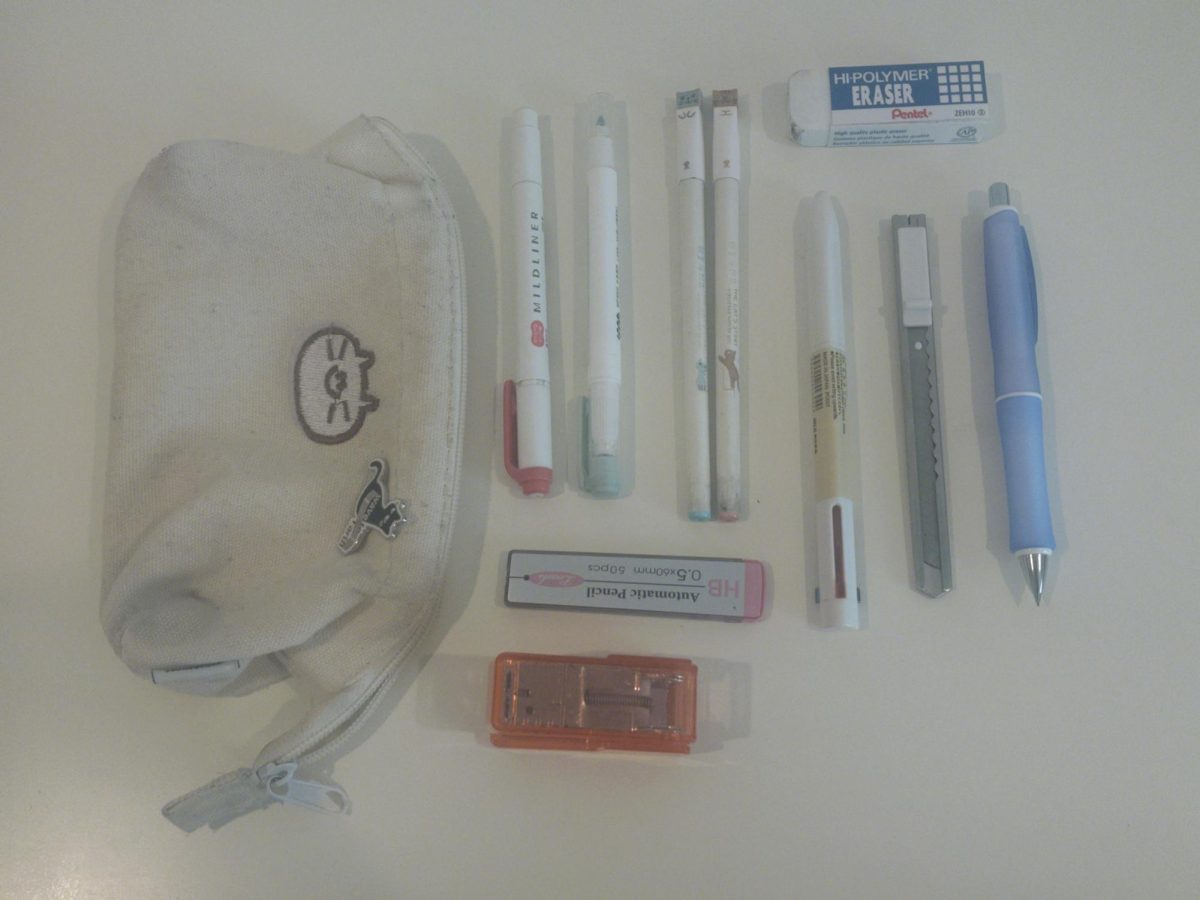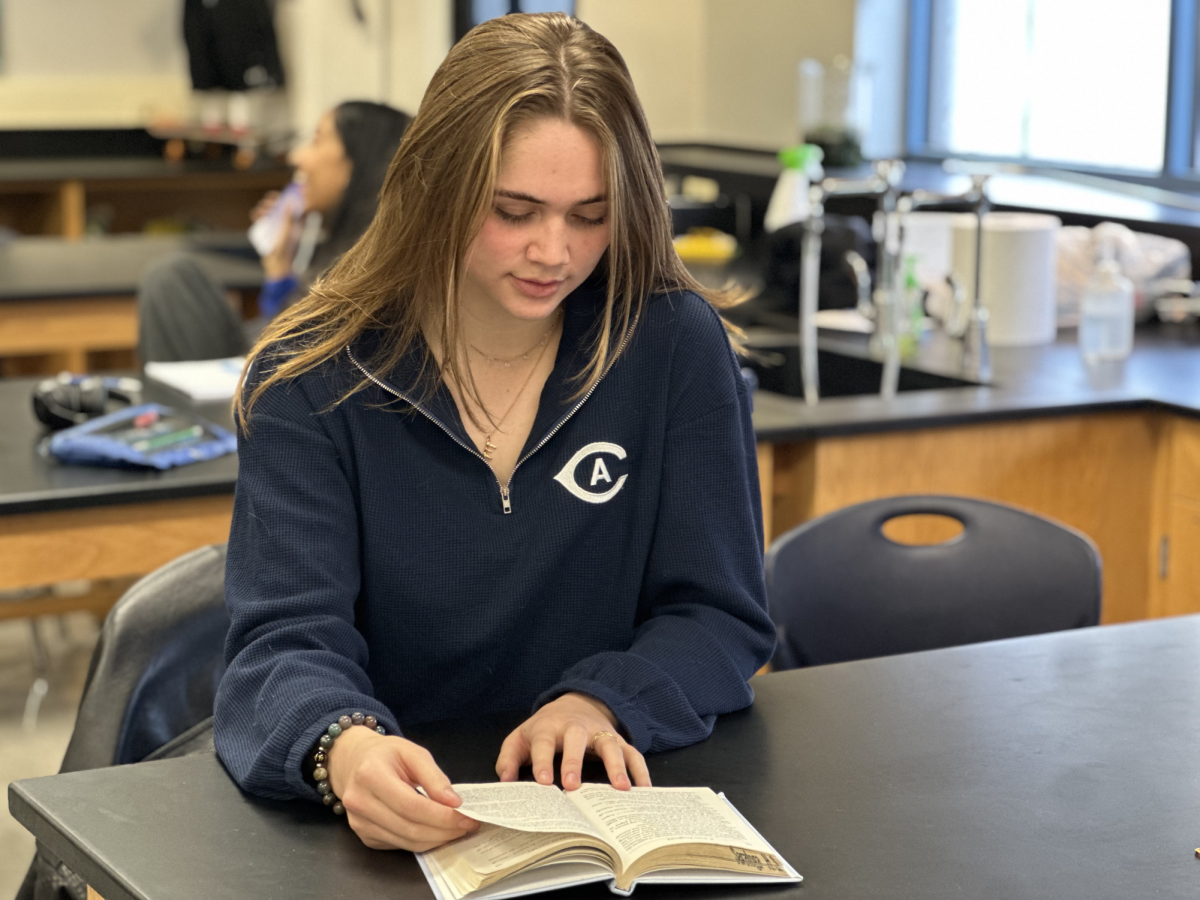Depending on whether they’re in Honors or college prep English classes, juniors read one of two books on slavery during the fall semester: “Beloved” by Toni Morrison or “Kindred” by Octavia Butler, both written by Black female authors.
This curricular choice is made so students can truly understand and comprehend the implications of slavery on African Americans and the generations that follow.
“Beloved” is set soon after the Civil War ends and follows Sethe, an escaped enslaved mother, as she grapples with her haunting past. The novel explores the lasting effects of slavery and the process of reclaiming identity for those scarred by personal and collective trauma.
Junior Sophie Qin was among the dozens of Honors students who had to double down their efforts to grasp the difficult text this past fall. She used sticky notes to mark passages and reread paragraphs she did not understand. Qin also developed her own method to reading the novel: She jotted down questions, summarized paragraphs and reviewed passages with her friends during tutorial before class.
Many English 11 Honors students like Qin also took advantage of tutorials to discuss “Beloved” with teacher Amy Keys and Natasha Ritchie as well as peers.
“There were many times when I just went up to Ms. Keys to ask her questions about certain sections of the book. She would break it down for me and ask me questions as well, which not only helped me understand the text, but also critically think before she answers my question directly,” Qin said.
Regarding the “Beloved” essay that was required for English 11 Honors students, Qin found it especially difficult to format her thinking into a cohesive essay.
“There are so many symbols and different interpretations on certain themes and scenes,” Qin said. “It was definitely tedious, but it was fun to express my own thoughts and have my own interpretations on certain chapters of the book.”
“Beloved,” which has been board approved for many years here, has faced complaints from parents in states such as South Carolina regarding its explicit material and mature content. Advocates for teaching the novel say these scenes are necessary to expose the brutal and heartbreaking realities of slavery.
“The book doesn’t shy away from the fact that violence and sexual abuse were everyday parts of life for enslaved people,” Qin said. “Slavery destroyed people’s minds and identities, blurred the lines between right and wrong in such a cruel world and left trauma that impacted generations.”
“Kindred,” one of several science fiction books written by Butler, follows Dana, a Black woman in 1970s Los Angeles, who is mysteriously transported back in time to the Antebellum South. There, she must save the life of her white ancestor, Rufus, to ensure her own survival.
Juniors enrolled in English 11 College Prep (CP), English 11 CP Media Arts Program (MAP) and English 11 Honors MAP read “Kindred” while juniors in English 11 Honors read “Beloved.” The honors MAP class contrasts English 11 Honors because the college prep and honors MAP classes share the same period.
The number of students enrolled in each class this school year is as follows: 77 in English 11 CP; 144 in English 11 Honors; 10 in English 11 MAP; and 34 in English 11 MAP Honors.
Teachers Amy Keys, Natasha Ritchie and Meg Battey say all classes hold the same essential learning goal despite the different books: to unpack the psychological effect of slavery on society and enslaved people. Throughout the unit, juniors dive into the 1800s to understand the implications and the legacy of enslavement in America. All students also watch “12 Years a Slave” — a film detailing Solomon Northrup’s journey from being kidnapped into slavery to escaping to freedom.
“The book addresses a certain topic about African Americans in a respectful, immersive, and thoughtful way,” Qin said. “Even though MAP students do not read it, they have their own books that made them progress through their English curriculum.”
According to Ritchie, who teaches both novels every year, “Kindred” is a high-engagement book that captivates students who are more reluctant readers, as dialogue drives the story through action-packed events. On the other hand, “Beloved” is a dense and difficult novel typically taught in more rigorous pathways, such as honors and college-level courses.
“I’ve learned more from reading and teaching ‘Beloved’ than from any other novel in my life,” Ritchie said. “The writing style, though, is extremely dense and very hard. It requires doubling down effort on the students’ part.”
Ritchie notes that students must be engaged by re-reading and flagging passages. By choosing to take English 11 Honors, students acknowledge that they have opted for a more rigorous curriculum and therefore willing to do the extra work.
Even though honors MAP students don’t read “Beloved,” Ritchie emphasized their essential learning goal is still accomplished either way, and students are given the appropriate novel given the level they have chosen.
“Both are written by award-winning, respected Black female authors, which is important to note,” Ritchie said. “When I first started teaching, we taught [“The Adventures of Huckleberry Finn “] as the novel associated with slavery in America. Huck Finn is a valuable book in lots of ways, but it’s written by Mark Twain, a white guy, and is essentially about a white kid.”
Because some English MAP classes have both honors and CP students, Ritchie made the decision to not teach separate books in the same classroom.
“There’s something awesome about the MAP program, where I am differentiating and having honors and [college prep] in the same classroom,” Ritchie said. “That doesn’t work as well in some disciplines, but in English, it really does. They might be doing different stuff at home, but in class, it’s important that they’re intersecting.”
Honors MAP students also have additional readings to complete at home to provide additional perspectives of the brutal reality of slavery. One such reading is an excerpt about the Whitney Plantation from “How the Word is Passed” by Clint Smith.
Another reason honors MAP students do not read “Beloved” is that all MAP students complete extra projects that non-MAP students don’t have in their curriculum. Overlapping the “Kindred” unit, MAP students take on filming and directing an “American Issues” documentary, which also requires them to write an additional research paper on the topic that their non-MAP counterparts don’t write.
Even though English 11 Honors MAP students don’t read “Beloved,” Ritchie still encourages them to do so on their own. Junior MAP English 11 Honors student Elizabeth Kline took up the challenge and recently finished reading “Beloved.”
For Kline, “Beloved” was challenging to follow at first because of its time shifts, while “Kindred” was engaging and fast-paced, making it easy to connect with the characters.
“I’ve learned the narrative of slavery from both books. It’s just the way the author delivers it,” Kline said. “If you want to read both, read ‘Kindred’ in a day. Spend some time on ‘Beloved.’”




























